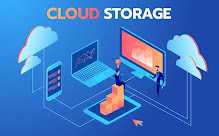Understanding Cloud Storage: Gcp DevOps
Introduction: In the ever-evolving landscape of digital storage solutions, cloud storage has emerged as a dominant force, offering scalable and flexible options for businesses and individuals alike. Among the various services provided by cloud storage platforms, Nearline and Coldline storage stand out for their unique features and use cases. This article will explore these two storage options, shedding light on their characteristics and helping users make informed decisions about their data storage needs. - GCP DevOps Online Training
I. The Basics of Cloud Storage: Before delving into Nearline and Coldline storage, it's crucial to grasp the fundamentals of cloud storage. Cloud storage enables users to store and access data over the internet, eliminating the need for physical hardware. This paradigm shift has revolutionized data management by providing cost-effective, scalable, and reliable storage solutions.
II. Nearline Storage: Balancing Performance and Cost:
Nearline storage is a type of cloud storage designed to bridge the gap between
frequently accessed data (hot storage) and infrequently accessed data (cold
storage). It offers a compromise between the lower cost of cold storage and the
faster retrieval times of hot storage. Nearline storage is ideal for data that
requires occasional access, making it a cost-effective solution for businesses
with fluctuating storage needs. - GCP DevOps
Training
III. Key Features of
Nearline Storage:
Cost-Effective: Nearline storage provides a more economical
option compared to hot storage, making it suitable for organizations looking to
optimize costs while ensuring data accessibility.
Retrieval Time: While not as quick as hot storage, Nearline
storage offers faster retrieval times compared to traditional cold storage.
This makes it suitable for data that may need to be accessed periodically but
doesn't require real-time access.
IV. Coldline Storage: Long-Term, Low-Cost Archiving:
Coldline storage is designed for archival purposes, catering to data that is
rarely accessed but needs to be stored securely for compliance or historical
reasons. It offers the lowest storage costs among the three options but comes
with longer retrieval times. Coldline storage is an excellent choice for
businesses with data retention requirements that extend over several years.
V. Key Features of
Coldline Storage:
Cost-Efficiency: Coldline storage is the most cost-effective
option for long-term data archiving. It allows organizations to meet regulatory
compliance requirements without breaking the bank.
Data Durability: Coldline storage platforms prioritize data
durability, ensuring that archived data remains intact and accessible even over
extended periods. - GCP DevOps
Training in Hyderabad
Conclusion: Understanding the nuances of cloud
storage options, such as Nearline and Coldline, empowers users to make informed
decisions based on their specific requirements. Whether prioritizing
cost-effectiveness, quick access times, or long-term archival needs, cloud
storage provides a range of solutions to cater to diverse data management
needs. By carefully evaluating the characteristics of Nearline and Coldline
storage, businesses and individuals can strike a balance between performance
and cost, ensuring optimal efficiency in their storage strategies.
GCP DevOps Online
Training - Visualpath provides best GCP DevOps Training classes by real-time
faculty with real time Projects. We are Providing GCP DevOps Training in
Hyderabad in Ameerpet Institute In Hyderabad, USA, UK, Canada, Dubai,
Australia. Call on +91-9989971070.
whatsApp:https://www.whatsapp.com/catalog/919989971070
Visit : https://visualpath.in/devops-with-gcp-online-training.html
Fill the Form : https://bit.ly/3TlH5BX
Visit For More Info : https://gcpdevopsonlinetraininginameerpet.blogspot.com/

.jpg)


Comments
Post a Comment